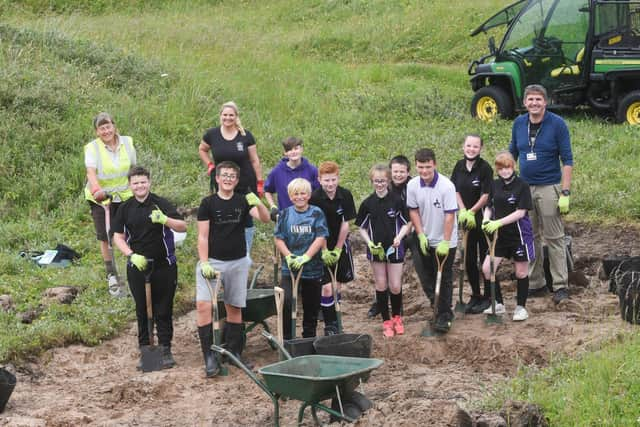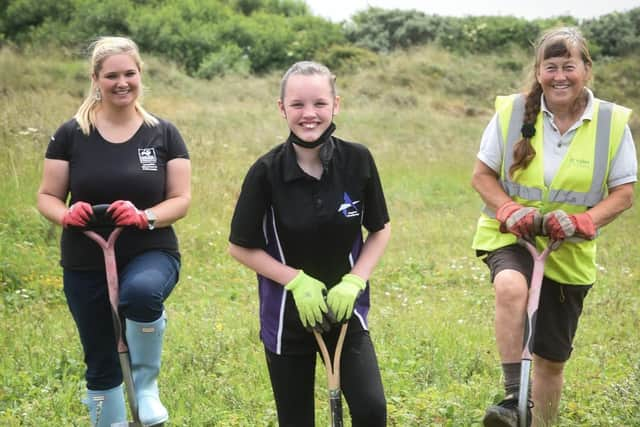Blackpool pupils helping wildlife thrive at St Annes sand dunes
and live on Freeview channel 276
Pupils from Aspire Academy in Blackpool Old Road have been working in partnership with Lancashire Wildlife Trust (LWT), following the school's determination to get involved with local conservation projects.
After making bird boxes for the school grounds, youngsters spent an afternoon at the sand dunes in St Annes to help LWT create more environments where wildlife can thrive.


Advertisement
Hide AdAdvertisement
Hide AdAmy Pennington, from LWT, said: "We have been out on our Lytham St Annes local nature reserve (LNR) digging dune slacks. The pupils have been team-working using spades and wheelbarrows to dig down to the natural water table and create a “pond.”
"This encourages a greater diversity of wildlife on the dunes and allows species that establish in wetter conditions to thrive. Dune slacks are different to ponds in that they dry up during the warmer months and are wet during the winter/wetter months.
"The slack the pupils create will provide a haven for animals like frogs, toads, smooth newt, dragonflies, damselflies, caddisflies, and many other freshwater species. It will also encourage different vegetation to grow on the dunes like water plantain, water-crowfoot, water mint, water forget-me-not and marsh pennywort."
The pupils taking part in the conservation work will pay further visits to the sand dunes in coming months, including to help the trust plant dune grasses and remove invasive species.


Advertisement
Hide AdAdvertisement
Hide AdThe work will contribute towards the Fylde Sand Dunes Project, a partnership between the Wildlife Trust, Fylde and Blackpool Councils and the Environment Agency, which will run until next year.
The project endeavours to encourage visitors to the dunes in a way which does not further threaten their existence, and improve the dunes as a sea defence feature.
John Topping, from Fylde Coast Academy Trust (FCAT) which runs the school, added: "These youngsters are certainly acquiring new and relevant practical skills whilst being engaged in curriculum content that many learners do not have access to.
"Our FCAT vision is dependent upon students benefiting from 'a rich, engaging and memorable learning experience'. This is certainly being achieved through impactful and challenging nature projects that will go on to improve habitats within our local sand dunes."
